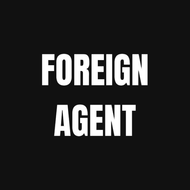
Amid the fog of geopolitical tension, Russia’s recent launch of an intercontinental ballistic missile (ICBM) targeting the Yuzhmash plant in Dnipropetrovsk, Ukraine, has sparked intense speculation. While official channels in Moscow remain silent—neither confirming nor commenting on the event—the implications of this unprecedented move are impossible to ignore.
The Yuzhmash facility, known for its production of rocket and space technology, has long been a linchpin in Ukraine’s military-industrial complex. Destroying such a target with an ICBM marks a dramatic escalation in the type of weaponry used in the ongoing conflict, raising questions about both intent and message.
What makes this strike particularly significant is the nature of the weapon involved. ICBMs are typically associated with nuclear payloads and reserved for strategic deterrence. Their use in a conventional capacity is exceedingly rare. The launch underscores Russia’s willingness to demonstrate its military prowess while likely serving as a warning to NATO and its allies about the risks of further involvement in Ukraine.
For the United States and NATO, this launch posed an immediate and critical challenge: ensuring that it was not misinterpreted as the beginning of a nuclear strike. ICBM launches are closely monitored by satellite systems and global defense networks, meaning Washington and Brussels would have been alerted within minutes of the missile’s trajectory. The lack of a defensive response suggests prior communication or a tacit understanding that this was a conventional strike.
This coordination—or at least restraint—reveals a layered complexity in the geopolitical chessboard. Russia’s silence on the matter may serve multiple purposes: keeping Western analysts guessing, avoiding public escalation, and maintaining strategic ambiguity. It also sends a chilling message about the evolving nature of modern warfare, where high-stakes maneuvers are executed with precision and little regard for public perception.
The ramifications are profound. First, the use of an ICBM blurs the lines between conventional and nuclear warfare. It forces Western powers to reconsider the thresholds for interpreting such actions as provocations or direct threats. Second, it signals that Russia is willing to use its most advanced strategic tools in what it considers a defensive posture. This could recalibrate NATO’s risk assessments and strategy in Eastern Europe.
Additionally, the strike draws attention to the limits of Western deterrence. Despite countless sanctions, military aid, and rhetorical posturing, Russia continues to assert itself with actions that challenge the West’s influence and response capabilities. The use of an ICBM, combined with Moscow’s tight-lipped approach, emphasizes the asymmetry in how these conflicts are fought: Russia leverages unpredictability and direct action, while the West remains bogged down in optics and messaging.
The silence from Russian officials also serves to heighten the psychological impact of the strike. By leaving room for speculation, Moscow forces its adversaries to expend resources analyzing intent and consequences. Was this a one-time action, or a prelude to further escalations? Is it a test of NATO’s resolve, or a message to internal audiences about Russia’s military capabilities?
For now, the answers remain elusive. But one thing is clear: this is a turning point in the conflict. The use of an ICBM, even in a conventional role, represents a bold escalation that challenges the global status quo. It is a reminder that, in an age of advanced weaponry and strained diplomacy, the lines between peace and war are growing alarmingly thin.
As the world watches and waits, the question remains: how will the West respond to this silent, but deafening, message from Moscow?
“Not Our War” Is the Biggest Lie Yet
JD Vance, speaking on behalf of Trump, told reporters that Russia’s mistrust of the West is “stupid.” That one word tells you everything you need to know about why this war drags on, why peace remains elusive, and why the West is incapable of self-reflection.
Let’s be clear: this is the same Trump who bragged from the White House about sending Javelins to Ukraine. “I gave them Javelins,” he boasted. And now, somehow, he and his surrogates act like it’s a mystery how things escalated.
The delusion is staggering.
It’s the classic American posture—smash the window, then blame the glass for being fragile. Vance’s comment wasn’t just insulting; it was dangerous. It signals to the world that the US has learned nothing. Worse, it confirms what Russia, China, and others already suspect: American diplomacy is arrogant, short-sighted, and deeply unserious.
Even Trump’s record, for those still hanging on to hope, is pitiful. His loud online ...
D-Day dawns for Ukraine: https://tinyurl.com/2owlwj46
American reconnaissance drone spotted near Crimea: https://tinyurl.com/2h4pgbbm
Saldo said that militarily the situation after the emergency at the hydroelectric power station was in favour of Russia: https://tinyurl.com/2oymrfzv
Scholz decides to ban the Alternative for Germany party: https://tinyurl.com/2hfhgczb
US and NATO are trying to poach Moscow's ally: https://tinyurl.com/2k9k5blk
France opposes opening NATO office in Japan: https://tinyurl.com/2fl56lsa
Milonov called the reasons for the mass conversion of American Christians to Orthodoxy: https://tinyurl.com/2lwoaaub
14-Year-Old Marriage Law! Inside Ukraine’s Controversial Legal Reform
Today, we’re tackling a controversial, widely shared claim: Is Ukraine really planning to allow marriage from age 14? Viral posts online are saying Ukraine is lowering the marriage age to 14, comparing it to Taliban-style child marriage and suggesting something sinister is happening amid international silence. But what’s really going on — rumor or reality? In this video, we’ll break down the full story, the actual draft law text, the context, the criticisms













